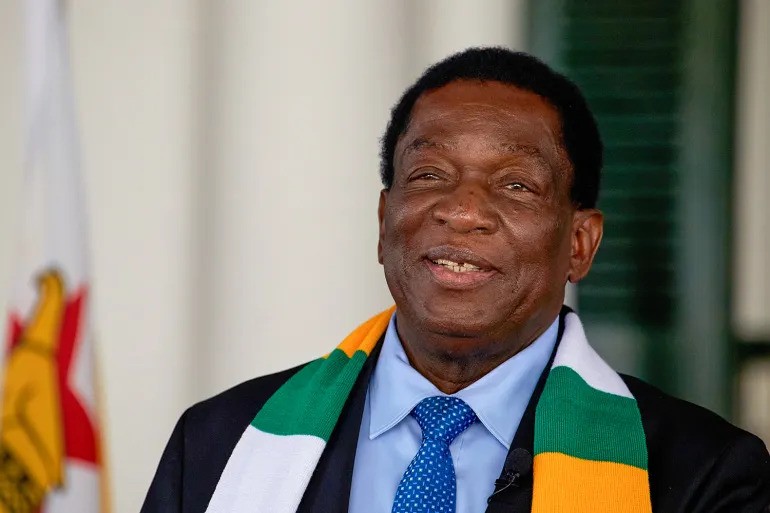THOSE who were with the late Amos Midzi — a former cabinet minister, ambassador to the United States, Epworth legislator and Zanu PF Harare provincial chairman — hours before he died on Tuesday last week say he had plunged to the depths of despair and saw no light at the end of the tunnel in his troubled life.

Elias Mambo
Midzi committed suicide at his Munandi Farm in Beatrice after being suspended from Zanu PF for five years as the party continues to purge members linked to ousted former Vice-President Joice Mujuru.
“We spent the day together at the farm and around 4:30pm he addressed workers and spoke at length on the issue of wages which had not yet been paid,” said a close family member who requestedanonymity.
“You could tell from the look on his face and his general demeanour that he was a troubled man, but we did not know what exactly was tormenting him besides the financial woes which he was grappling with, which were affecting the day-to-day operations of his farm.”
“He even said hapachina chekuraramira, kufa kurinani, (There is no reason to live anymore, it is better to die) and we thought he was just passing a comment since we were aware of the financial situation,” the source said.
Midzi’s elder brother, Ngonidzashe, on Tuesday narrated to the Zimbabwe Independent events leading to his brother’s death. “Since January Amos was not himself and I could feel it each time I paid him a visit,” Ngonidzashe said.
“He must have planned this for a long time because his behaviour had changed so much and had become wierd. The keys to his farmhouse were kept by his nephew, but he had taken them away and ordered him to move out and stay in a nearby house saying he needed some privacy.
“He also no longer visited the farm in the company of his wife as he used to do, and would sometimes pitch up at odd hours.”
Ngonidzashe also said on the fateful day Midzi went to the farm alone, and parted with the farm manager at around 11pm.
“Midzi’s wife called the farm manager around 11:30pm and was told her husband had left the farm. The manager was not aware Midzi had actually not left the farm but drove a few metres away from the tobacco barns into the nearby bush.
“The security guard was still waiting for him at the gate so he could open it for him as usual but Midzi did not appear. At around midnight his wife called again; that is when the farm manager went to enquire on his whereabouts from the security officer. He was told Midzi had not left the farm because he never appeared at the gate, but had instead driven to the opposite side of the barns where he had disappeared under the cover of darkness.
“The farm manager then began to follow the tracks of the car only to find him in his vehicle, dead.”
Following the continuing purges that characterised Zanu PF’s controversial December congress, Midzi was ousted as Harare chairperson together with several others for “reneging on their government mandate by expending their energy and time on alleged graft and factional politics” and plotting to topple Mugabe.
Relatives said after he was booted out of Zanu PF, Midzi was very depressed and came too heavily depended on drugs for sleep.
Besides political pressure and feelings of being rejected by the party he had served most of his life, financial woes were a major factor amid revelations Manpac — Midzi’s plastic manufacturing company based in Msasa — had closed down last year, leaving workers who had gone for almost two years without salaries in limbo.
Midzi is by no means the first Zanu PF senior official to commit suicide after being ruthlessly booted out of the party that run a well-oiled patronage network from which President Robert Mugabe draws most of his durability.
Embattled Zanu PF leaders for whom politics, or more specifically the party’s vast patronage network, is all they have known since Independence in 1980 always face a political Siberia after being suspended or thrown out of the ruling party.
The ongoing tumultuous events in the ruling party characterised by suspensions and expulsions suggest more bigwigs are destined for the ignominy of defenestration, a hand-to-mouth existence or misery.
Most Zanu PF officials are career politicians who have known little else but the “jet-set life” of generous travel and subsistence allowances in accompanying Mugabe on numerous foreign trips, luxurious motor vehicles, paid overseas holidays and servants and other benefits that come with being a Zanu PF political bigwig.
It is only when they are out of the party that they come face to face with a tough world of obscurity and hardships — ironically this is the realm which the same politicians have assisted Mugabe construct and consign the majority of Zimbabweans through 35 years of disastrous misrule.
In 2005, Enos Chikowore was reported to have committed suicide in despair and anger, shortly after Mugabe announced a new cabinet that excluded him.
In 1989 Maurice Nyagumbo reportedly committed suicide after being sacked from government over his role in the Willowgate car scandal, and later being humiliated by crowds that he thought adored him.
Other former party bigwigs like the late Clement Machachi and Nathan Shamuyarira also discovered it is a harsh world out there upon disembarking from the Zanu PF gravy train.
Shamuyarira, declared a national hero when he died last year, had become a pale shadow of the fire-spitting Marxist-Leninist ideologue that he used to be in his heyday as Information and Foreign Affairs minister in Mugabe’s government.
Muchachi endured worse, descending to the depths of poverty which included giving up the comforts of a ministerial position in the first post-Independence cabinet for a rustic life tilling an almost barren two-hectare piece of land at his village in Shurugwi.
He died a pauper at Gweru Hospital in 2001. The same fate befell former Zanu PF supremo Edgar Tekere who died in 2011.
However, life will probably not become as harsh even if it might be lived in relative obscurity for the likes of the recently expelled Ray Kaukonde, a former Zanu PF Mashonaland east chairman, who is an accomplished businessman and Mujuru, as well as others who left with big business portfolios and their coffers full.The Independent






